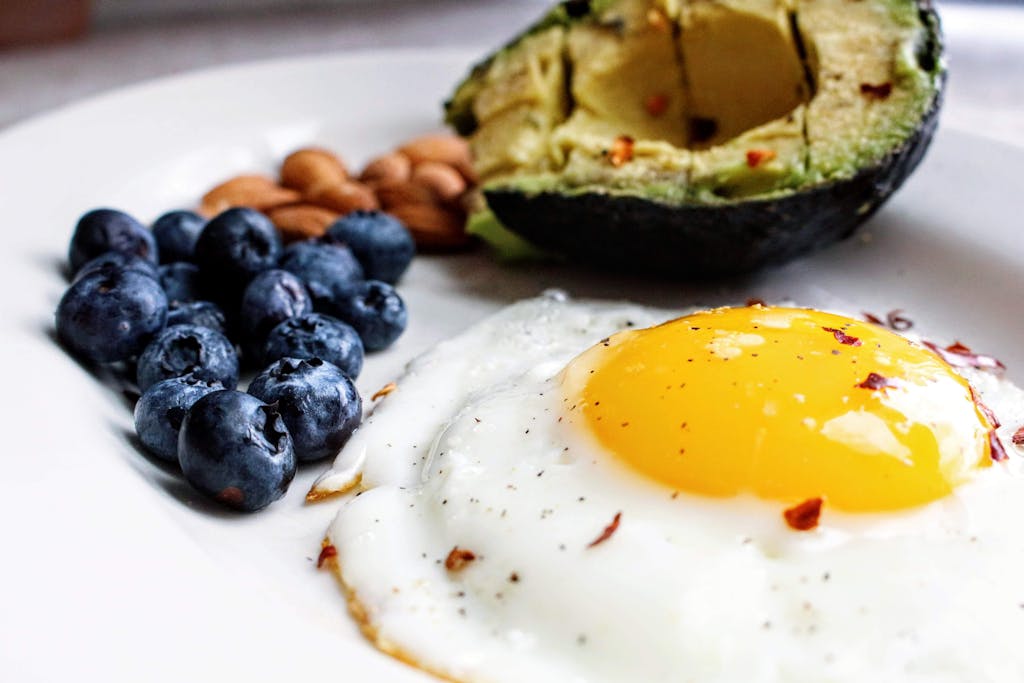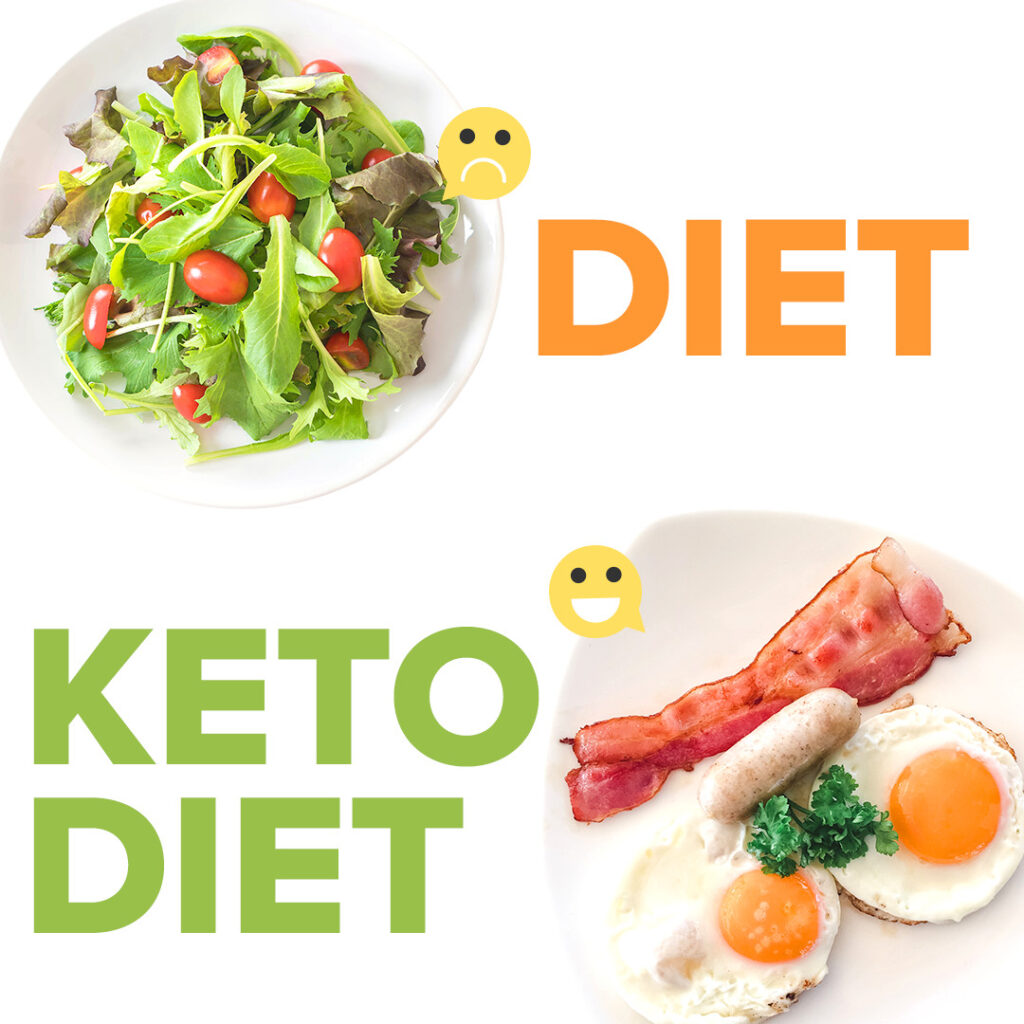
Top Choices and Tips for a Successful Keto Diet
The ketogenic diet has gained immense popularity in recent years for its effectiveness in promoting weight loss and overall health. One of the key aspects of following a successful keto diet is knowing which foods are suitable to consume while on this low-carb, high-fat eating plan. In this comprehensive guide, we will explore the top 10 keto-friendly foods, answer common questions like whether bananas or popcorn can be included in a keto diet, discuss the best meat options for keto enthusiasts, and provide valuable insights on how to make smart food choices to stay in ketosis. Let’s delve into the world of keto-friendly foods and discover how you can optimize your diet for success.
1. Top 10 Keto Foods
When following a ketogenic diet, it’s essential to focus on foods that are low in carbohydrates but high in healthy fats and moderate in protein. Some of the top 10 keto-friendly foods include:
– Avocados: Rich in healthy fats and fiber, avocados are a staple in the keto diet.
– Eggs: A versatile and nutritious option, eggs are an excellent source of protein.
– Olive Oil: Packed with monounsaturated fats, olive oil is a great choice for cooking and dressing.
– Nuts and Seeds: Almonds, chia seeds, and flaxseeds are good sources of healthy fats and fiber.
– Leafy Greens: Spinach, kale, and other leafy greens are low in carbs and high in nutrients.
– Coconut Oil: Ideal for cooking and baking, coconut oil is a keto-friendly fat.
– Salmon: A fatty fish rich in omega-3s, salmon is a great protein option for keto dieters.
– Cheese: High-fat dairy products like cheese can be enjoyed in moderation on the keto diet.
– Berries: While most fruits are high in carbs, berries like raspberries and blackberries are lower in sugar.
– Greek Yogurt: Opt for full-fat Greek yogurt with no added sugars for a creamy and satisfying treat.
By incorporating these top 10 keto foods into your meal plan, you can ensure that you’re getting the right balance of nutrients while staying within your carb limits.
2. Can You Eat Bananas on Keto?
Bananas are known for their high carbohydrate content, making them less suitable for a strict ketogenic diet. A medium-sized banana can contain around 27 grams of carbs, which can easily exceed your daily carb allowance on keto. However, if you’re following a more flexible approach known as “lazy keto,” where you focus primarily on carb intake without strict tracking of macros, you may occasionally include small portions of higher-carb fruits like bananas. It’s essential to monitor your carb intake closely to ensure that you’re not exceeding your daily limit and risking being kicked out of ketosis.
3. Keto-Friendly Meats
Meat is a primary source of protein and fat on the ketogenic diet. When selecting meats for your keto meals, opt for options that are minimally processed and free from added sugars or carbs. Some keto-friendly meat choices include:
– Beef: Choose cuts like steak, ground beef, or beef jerky without added sugars.
– Pork: Pork chops, bacon, and ham are popular choices for keto enthusiasts.
– Chicken: Skin-on chicken thighs or breasts provide ample protein and healthy fats.
– Turkey: Ground turkey or turkey breast are lean options for those watching their fat intake.
– Lamb: Lamb chops or ground lamb offer a flavorful alternative to traditional meats.
It’s important to prioritize quality when selecting meats for your keto diet to ensure that you’re getting the necessary nutrients without unwanted additives or hidden carbs.
4. Is Peanut Butter Keto-Friendly?
Peanut butter is a favorite snack for many people, but its suitability on the ketogenic diet depends on the ingredients used. Traditional peanut butter often contains added sugars or hydrogenated oils that can increase carb content. To enjoy peanut butter on keto, opt for natural varieties made with just peanuts and salt. Alternatively, you can explore other nut butter options like almond butter or macadamia nut butter that may have lower carb counts. Remember to consume nut butters in moderation as they can be calorie-dense and easy to overeat.
5. Filling Keto Foods
To stay satisfied on a ketogenic diet, it’s important to incorporate foods that are filling and satiating. Some keto-friendly options that can help keep hunger at bay include:
– Avocados: The combination of healthy fats and fiber in avocados makes them a filling choice.
– Eggs: High in protein and nutrients, eggs can help you feel full longer.
– Nuts and Seeds: Snacking on almonds, walnuts, or chia seeds can provide a satisfying crunch.
– Fatty Fish: Salmon, mackerel, and sardines offer omega-3 fatty acids that promote fullness.
– Coconut Oil: Adding coconut oil to your meals can increase feelings of satiety.
By including these filling keto foods in your daily menu, you can better manage cravings and maintain steady energy levels throughout the day.
6. Keto-Friendly Chips
Traditional potato chips are off-limits on the ketogenic diet due to their high carb content. However, there are several low-carb chip alternatives available that can satisfy your cravings while keeping you in ketosis. Some keto-friendly chip options include:
– Kale Chips: Baked kale leaves seasoned with salt or spices make a crunchy snack.
– Cheese Crisps: Melted cheese baked until crispy creates a savory chip-like snack.
– Pork Rinds: Fried pork skin offers a crunchy texture with minimal carbs.
Experiment with different chip substitutes to find ones that satisfy your cravings without derailing your keto progress.
7. Is Bacon Keto-Friendly?
Bacon is a popular choice among keto enthusiasts due to its high fat content and savory flavor profile. When selecting bacon for your keto meals, opt for uncured varieties without added sugars or preservatives. Enjoy bacon as part of a balanced meal alongside eggs, avocado, or leafy greens to create a satisfying dish that aligns with your ketogenic goals.
8. Lazy Keto Foods
Lazy keto refers to a simplified approach to the ketogenic diet that focuses primarily on reducing carb intake without strict tracking of macros or calories. While this approach may work well for some individuals looking for a more flexible way to follow keto guidelines, it’s essential to choose foods that support your overall health goals. Some lazy keto-friendly foods include:
– Eggs
– Avocados
– Cheese
– Nuts
– Leafy Greens
By incorporating these basic yet nutritious foods into your lazy keto meal plan, you can maintain ketosis while enjoying some flexibility in your dietary choices.
9. Popcorn on Keto
Popcorn is a high-carb snack typically made from corn kernels, making it unsuitable for traditional ketogenic diets due to its carb content. However, if you’re following a more lenient approach like lazy keto or cyclical keto where occasional higher-carb foods are allowed, you may include small portions of air-popped popcorn as an occasional treat. Be mindful of portion sizes and track your carb intake to ensure that popcorn fits within your daily limits without compromising ketosis.
10. Boiled Eggs on Keto
Eggs are a versatile and nutrient-dense food choice for those following a ketogenic diet. Boiled eggs make an excellent snack or meal option as they are easy to prepare and portable. While there is no strict limit on how many boiled eggs you can eat on keto, it’s essential to consider your overall protein intake and balance it with healthy fats and low-carb vegetables for optimal nutrition. Including boiled eggs in your meal plan can help boost your protein intake while keeping you satisfied between meals.
11. Oatmeal on Keto
Traditional oatmeal is high in carbs due to its grain-based nature, making it incompatible with strict ketogenic diets. However, there are low-carb oatmeal alternatives available that use ingredients like flaxseed meal, chia seeds, or coconut flour to mimic the texture of oatmeal without the excessive carbs. By exploring creative recipes using these keto-friendly ingredients, you can enjoy a warm bowl of “oatmeal” while staying within your carb limits.
12. Carb-Free Meats
Certain types of meat naturally contain zero carbs, making them ideal choices for those following strict ketogenic diets. Some examples of carb-free meats include:
– Beef
– Pork
– Lamb
– Poultry (chicken, turkey)
– Game meats (venison, elk)
Incorporating these carb-free meat options into your meals allows you to focus on consuming adequate protein and healthy fats without worrying about exceeding your carb limits.
13. Breakfast Meats on Keto
When selecting breakfast meats for your ketogenic meal plan, opt for options that are minimally processed and free from added sugars or fillers. Some breakfast meats that are keto-friendly include:
– Bacon: Uncured bacon without added sugars is a popular choice among keto enthusiasts.
– Sausage: Look for sausage varieties made from high-quality meats without added carbs.
– Ham: Choose ham slices or diced ham as part of a protein-rich breakfast option.
Pairing these breakfast meats with eggs or low-carb vegetables creates a satisfying morning meal that supports your ketogenic goals.
14. Hot Dog Meat on Keto
Hot dogs are typically made from processed meats like pork or beef mixed with seasonings and preservatives. While some hot dogs may contain added fillers or carbs that could impact ketosis, choosing high-quality hot dog brands without added sugars or fillers can make them suitable for a ketogenic diet. Enjoy hot dog meat wrapped in lettuce leaves instead of traditional buns to keep your meal low in carbs while still satisfying your cravings.
In conclusion,
Following a successful ketogenic diet involves making informed food choices that align with the principles of low-carb, high-fat eating while prioritizing nutrient density and overall health goals. By incorporating top 10 keto foods into your meal plan, understanding which foods are suitable for ketosis such as meats and snacks like nuts or cheese crisps; making smart substitutions like almond butter instead of peanut butter; monitoring portion sizes; experimenting with lazy keto options; exploring creative recipes; being mindful of carb content; balancing protein intake; focusing on quality ingredients; staying hydrated; managing cravings; tracking progress; seeking professional guidance if needed—you can optimize your dietary habits to support long-term success on the ketogenic journey towards improved well-being.
Remember that individual responses to dietary changes may vary based on factors such as metabolism; medical conditions; physical activity levels; lifestyle preferences; cultural influences; personal tastes; social situations; emotional connections to food; genetic predispositions; environmental factors; seasonal availability; budget considerations—so it’s essential to listen to your body’s signals; consult healthcare providers when necessary; seek support from communities; prioritize self-care practices; practice mindfulness around eating habits; maintain realistic expectations; celebrate achievements along the way—while embracing the transformative power of nourishing yourself with wholesome foods that fuel both body & mind towards optimal health outcomes.
Ultimately,
The journey towards embracing a sustainable ketogenic lifestyle is about cultivating awareness around food choices as part of a holistic approach towards wellness encompassing physical vitality; mental clarity; emotional balance; social connections; environmental stewardship—where each meal becomes an opportunity not just for nourishment but also self-expression creativity joy gratitude connection celebration transformation healing empowerment resilience sustainability abundance mindfulness presence purpose fulfillment liberation evolution transcendence unity harmony wholeness integration alignment embodiment authenticity love life itself—an ongoing exploration discovery adventure unfolding moment by moment—guided by curiosity openness curiosity trust intuition inspiration courage determination perseverance patience adaptability flexibility resilience—all rooted in self-love compassion kindness gratitude humility generosity service integrity authenticity truthfulness responsibility and accountability









